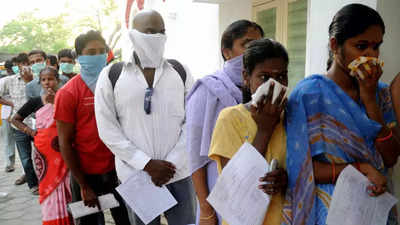Skip to main content
H3N2 Flu | Current Situation | India | 2023
Introduction:
H3N2 flu, also known as influenza A subtype H3N2, is a type of flu virus that causes respiratory illness in humans. It is one of the many flu viruses that circulate globally, causing seasonal epidemics and occasional pandemics. In India, H3N2 flu has been a cause of concern in recent years due to its high virulence and potential to cause severe illness and death.
Current Situation of H3N2 Flu in India:
According to the Ministry of Health and Family Welfare, India has been experiencing a surge in H3N2 flu cases since the start of 2023. The situation is particularly worrisome in densely populated areas, such as cities, where the virus can spread quickly.
As of March 2023, there have been thousands of reported cases of H3N2 flu in India, with the highest number of cases being reported in the states of Maharashtra, Tamil Nadu, and Karnataka. The majority of these cases have been mild, but there have been some severe cases requiring hospitalization and even deaths.
Factors Contributing to the H3N2 Flu Outbreak in India:
Several factors have contributed to the current H3N2 flu outbreak in India. These include:
High Population Density: India is the second-most populous country in the world, with a population of over 1.3 billion people. The high population density in urban areas makes it easier for viruses to spread from person to person.
Low Vaccination Rates: Despite efforts by the government to increase vaccination rates, many people in India still do not receive the flu vaccine. This leaves them vulnerable to getting infected with H3N2 flu and other flu viruses.
Poor Hygiene Practices: Poor hygiene practices, such as not washing hands regularly, can increase the spread of H3N2 flu and other respiratory viruses.
Air Pollution: Air pollution is a major problem in India, particularly in cities like Delhi. The pollution can weaken the immune system, making it easier for viruses like H3N2 flu to cause illness.
Prevention and Treatment of H3N2 Flu:
Prevention is key to avoiding H3N2 flu and other respiratory illnesses. Here are some steps that people can take to protect themselves:
Get Vaccinated: The flu vaccine is the best way to protect against H3N2 flu and other flu viruses. The vaccine is recommended for everyone over the age of six months.
Practice Good Hygiene: Washing hands regularly with soap and water, covering coughs and sneezes with a tissue or elbow, and avoiding touching the face can all help prevent the spread of H3N2 flu.
Avoid Close Contact with Sick People: If someone is sick with H3N2 flu or another respiratory illness, it's best to avoid close contact with them to avoid getting infected.
Stay Home When Sick: If someone has H3N2 flu or another respiratory illness, they should stay home to avoid spreading the virus to others.
Treatment for H3N2 flu typically involves rest, hydration, and over-the-counter medications to relieve symptoms. Antiviral medications may also be prescribed in severe cases to help reduce the duration and severity of illness.
Conclusion:
H3N2 flu is a serious respiratory illness that can cause severe illness and even death. In India, the current outbreak of H3N2 flu has been a cause for concern due to the high number of reported cases. To protect against H3N2 flu and other respiratory illnesses, it's important to practice good hygiene, get vaccinated, and avoid close contact with sick people.


Comments
Post a Comment